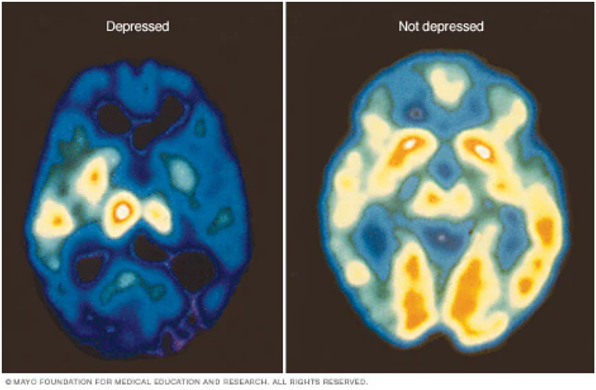Topic: Managing Winter Blues & Holiday Stress
The holiday season can be a time of great joy, and for many, great stress. The presence of gloomier weather, time change due to the end of daylight savings, and overall increase in demands and obligations further contribute to feelings of stress, depression, and seasonal affective disorder.
- According to the American Psychological Association, At least 38% of adults experience increased stress and depression during the holidays and winter months.
- The accumulation of increased social obligations, work demands, and financial burden of gift giving and party contributions can be extremely overwhelming and may lead to eventual burnout.
Winter/Seasonal Blues
Decreased exposure to sunlight causes….
- Reduction in Vitamin D which is linked to mood disorders and depression
- Decreased evening light contributes to seasonal affective disorder
- The suppression of melatonin and serotonin which play a key role in mood balance. People are more likely to be tired, irritable, and have difficulty sleeping in the days following time change
Managing winter blues
- Get out in the sun
- Spending 5-15 minutes outdoors a few times a week increases vitamin D. This promotes reduced inflammation and modulates cell growth. Increases serotonin leading to improved mood, reduced anxiety and depression, reduced incidence of seasonal affective disorder, higher sleep quality, and stronger bones. Lower blood pressure: sunlight exposure causes the body to release nitric oxide which improves heart health.
- Seek professional help
- We seek help for physical ailments and should also seek help for mental ailments.
- The brain is an organ. Depression, anxiety, stress, etc. are an illness of that organ.

A PET scan can compare brain activity during periods of depression (left) with normal brain activity (right). An increase of blue/green colors, along with decreased white/yellow areas shows decreased brain activity due to depression
Holiday Stress
Over half of Americans experience emotions like sadness and loneliness during this time.
- According to the American Psychological Association, 38% of individuals report increased stress during the holidays.
- The accumulation of responsibilities at home and at work can create a situation where there’s much to be done in less time, leading to feelings of being over overwhelmed and eventually, burnout.
Managing Holiday Stress
- Prioritize your mental health
- Be ok with saying no:
- Choose the events that will be the most meaningful for you. It’s ok to not attend every one.
- Try to practice more mindfulness: maintain daily schedules, keep/make time for activities that bring you peace (i.e. yoga, daily walks, intentional connections with loved ones).
- Limit screen time and social media “scrolling.” Practice being present.
- Seek professional help as needed
- Be ok with saying no:
Managing financial stress during the holidays
- Plan ahead when possible
- Make lists to stay organized
- Create a budget and stick with it
- Shop early and/or throughout the year to maximize savings
- Create menus ahead of time, shop early for non-perishable items
- Be creative with gift giving and more selective with whom you exchange gifts
- Consider experiences over “gifts”
- Consider games and activities instead of gift exchanges at larger gatherings
Other Tips
- Respect differences between family members and friends.
- Avoid topics that can be argumentative or uncomfortable (i.e. politics, religion, etc.)
- Set boundaries and create new traditions that work best for you and your family:
- Your holiday traditions don’t have to look like everyone else’s
- It’s ok for traditions to change as families grow and change
- Friends and family may have different views on how to celebrate. Be true to yourself.
- Be aware of what input/media you choose: opt for light hearted/feel good books, television, podcasts, and movies. Try to avoid negative, suspenseful, toxic media.
- Limit screen time and social media scrolling, especially before bed and when interacting with others.
Remember…
“You are worth the quiet moment. You are worth the deeper breaths and you are worth the time it takes to slow down, be still, and rest.”
— Morgan Harper Nichols
References:
Strengthening Your Mental Fitness – Mayo Clinic
Self-Care during the Stressful Holiday Season – The NCCS